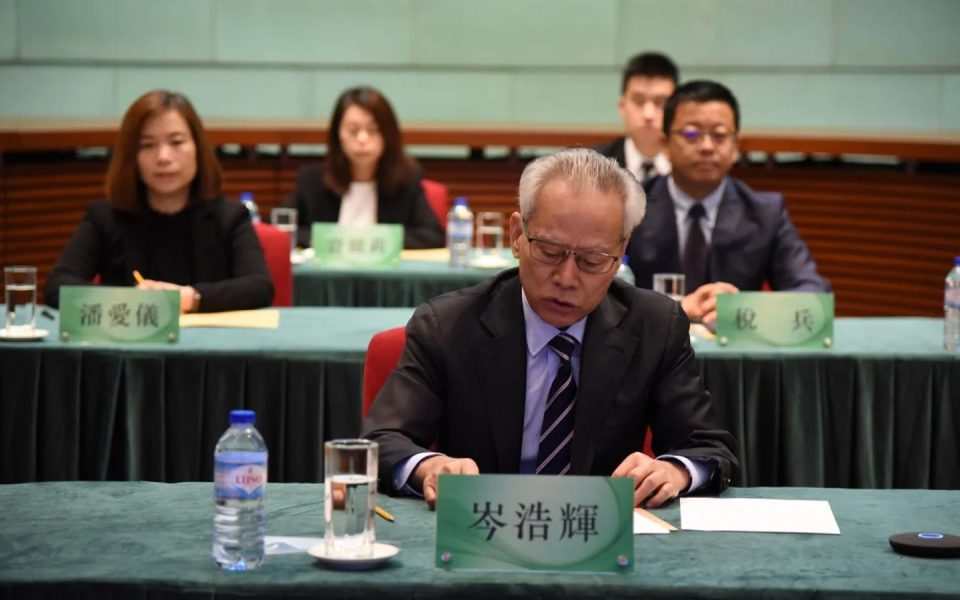Approximately 400 Beijing loyalists cast their votes on Sunday to endorse the sole candidate for leadership in Macao, a largely ceremonial election that promises to appoint Sam Hou Fai as the first leader of the casino hub born in mainland China.
Sam, a former chief judge, is anticipated to secure a decisive victory within hours of voting, signaling a departure from the tradition of having chief executives born in the former Portuguese colony, typically from influential business families. Analysts suggest that this change in leadership may result in a reduction in the influence of business sectors, which have often faced accusations of collusion with government officials. They believe that Beijing’s policy agenda for Macao will take precedence.
At 62 years old, Sam is considered to have the support of Beijing, having already garnered endorsements from 386 of the 400 election committee members, who voted in shifts at a conference hall.
Prominent figures in the committee included Pansy Ho, executive chairperson of Shun Tak Holdings and daughter of the late casino mogul Stanley Ho, as well as lawmaker Angela Leong, one of Ho’s wives, and former chief executives Edmund Ho and Fernando Chui.
Vote counting commenced at approximately 10:30 AM.
Most of Macao’s 687,000 residents do not have voting rights, resulting in mixed feelings about the election. Some hope Sam will heed public opinion and prioritize the community’s needs over corporate interests, while others feel marginalized by an election process from which they are excluded.
Nevertheless, political observers noted that many residents accept Sam’s non-local background in a city with a long history of migration.
With Sam’s election almost assured, the real challenges will be managing the governance issues that lie ahead.
Macao stands out as the only location in China where casino gambling is legal, and Beijing has urged the region to diversify its gambling-dependent economy. Sam has committed to hastening the government’s current initiatives to enhance tourism and explore other sectors such as traditional Chinese medicine, finance, exhibitions, and commerce. Despite these efforts, analysts contend that the city will continue to rely significantly on the gambling industry for government revenue to support public welfare and achieve Beijing’s objectives.
As China aims to transform Macao into a world-class tourism and leisure hub and strengthen its role as a trade bridge with Portuguese-speaking countries, local businesses have suffered. Residents often spend their money across the border in Zhuhai, where a broader range of goods at competitive prices are available, and Chinese tourists are now spending less than before.
It remains to be seen whether Sam, who lacks extensive governmental leadership experience, can assemble a competent cabinet to address these pressing challenges.
Born in neighboring Guangdong province in 1962, Sam graduated from the prestigious Peking University Law School in Beijing. He studied Portuguese culture and law at the University of Coimbra in Portugal and has previously practiced law in mainland China.
Upon Macao’s return to Chinese sovereignty in 1999, Sam became the city’s top judge, serving nearly 25 years in this role before resigning in August to run for office. Notably, he ruled on politically sensitive cases, including rejecting an appeal against a police ban on a vigil commemorating the 1989 Tiananmen Square crackdown, and upholding decisions to bar pro-democracy candidates from running in 2021 legislative elections.
Credit: ABC News




